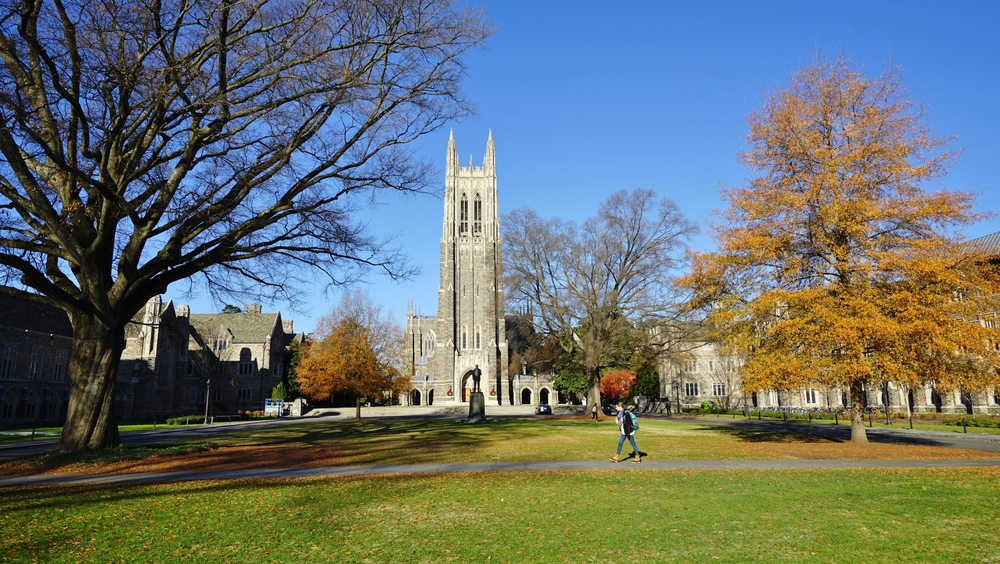
Duke University will add two new battery-electric buses in July 2020 and a fully-electric car this month to its Parking & Transportation Services fleet. The 40-foot Proterra Catalyst E2 buses can carry up to 40 seated passengers and operate for about 200 miles (322 km) on a single charge. The battery-electric buses release zero tail-pipe emissions, require no oil changes, and use no liquid fuels. The all-electric Chevy Bolt runs 238 miles (383 km) on a single charge. It will not require oil changes and will be equipped with an automatic license plate reader. Duke will also install two Proterra 60kW plug-in charging stations with standardized charge ports that can also be used to charge other electric vehicles in the fleet.
“This was an easy decision to make,” said Carl DePinto, director of Duke Parking and Transportation Services. “The buses are clean, quiet and support our goal of becoming a climate-neutral institution.”
Duke currently operates 24 buses that run on hybrid-diesel or diesel fuel. The new battery-electric buses will replace two diesel vehicles, saving Duke about $924,000 in maintenance, fuel, and vehicle costs over their lifespan. Duke has reduced its campus greenhouse gas footprint by 24 percent since the inception of its program in 2007 which committed the campus to carbon neutrality. However, since 2007, Duke has also seen a nine percent increase in total emissions from employee commuting, air travel, and Duke-owned fleets. In order to address the impact transit has on its carbon footprint, Duke plans to phase out the purchase of hybrid and diesel-hybrid buses and will buy electric buses moving forward. As replacements for diesel vehicles, the Proterra Catalyst electric buses can also save more than five million pounds of carbon emissions over their 12-year lifespan.
“Using electric buses is a big step toward reaching our goal of being carbon neutral by 2024,” said Jason Elliott, assistant director of Sustainable Duke. “The buses will be a great way for students, staff and faculty to experience the impact of the work Duke is doing in sustainability.”
